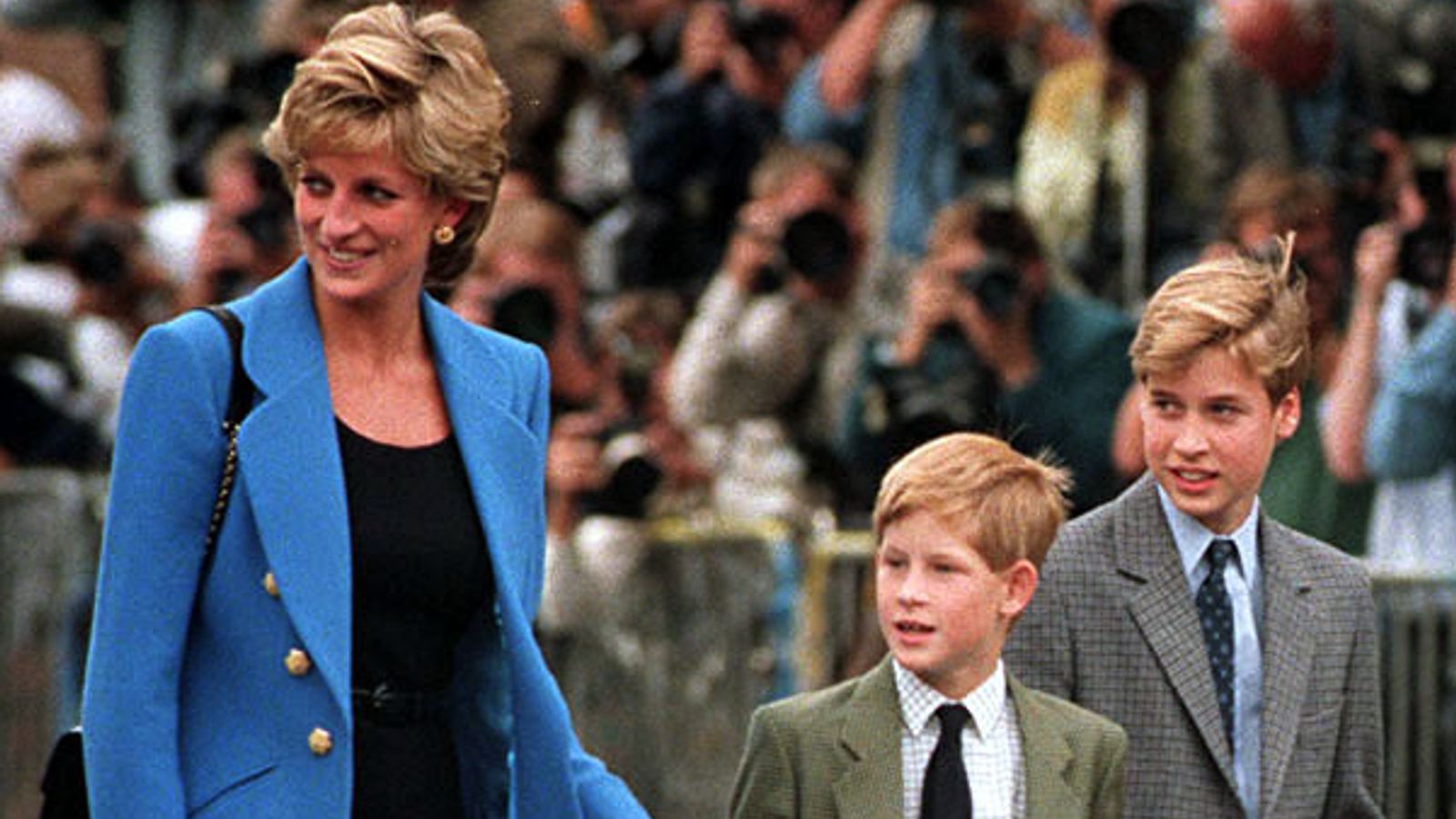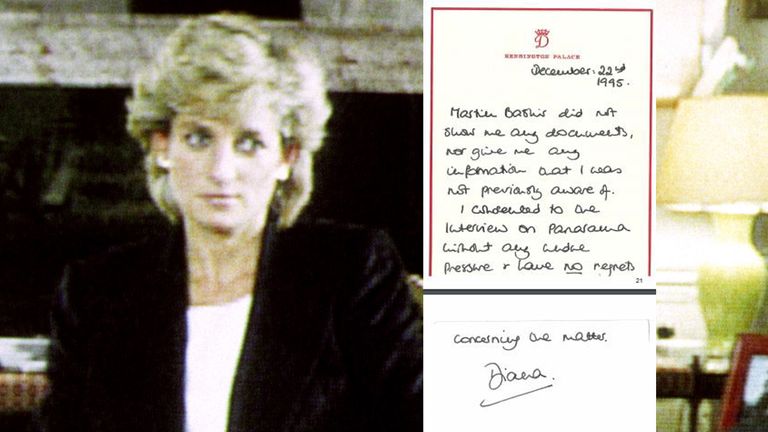Prince William says the BBC’s failures surrounding Martin Bashir’s 1995 Panorama interview with his mother “contributed significantly to her fear, paranoia and isolation” – and the episode should never be broadcast again.
He said Princess Diana was “failed” not just by the “rogue reporter”, but by BBC bosses “who looked the other way rather than asking the tough questions”.
William said the interview was a “major contribution to making my parents’ relationship worse and has since hurt countless others”, while his brother Prince Harry said “the ripple effect of a culture of exploitation and unethical practices ultimately took her life”.
It comes after an independent inquiry found ex-BBC reporter Mr Bashir “deceived and induced” Diana’s brother Earl Spencer to secure the landmark interview.
The Duke of Cambridge said the episode “holds no legitimacy”, adding that if the BBC had properly investigated the complaints and concerns first raised in 1995, “my mother would have known that she had been deceived”.
He said it “brings indescribable sadness” to know that BBC failings “contributed significantly to her fear, paranoia and isolation that I remember from those final years with her”.
The Duke of Sussex thanked those “who have taken some form of accountability” over the interview, but said “what deeply concerns me is that practices like these – and even worse – are still widespread today”.
“Then, and now, it’s bigger than one outlet, one network, or one publication,” he added.
“Our mother lost her life because of this, and nothing has changed. By protecting her legacy, we protect everyone, and uphold the dignity with which she lived her life. Let’s remember who she was and what she stood for.”
Mr Bashir had faked bank statements, which was a “serious breach” of BBC guidelines on straight-dealing, as he showed them to Earl Spencer to gain access to the princess in 1995, the inquiry concluded.
Mr Bashir commissioned documents purporting to show payments into the bank account of Alan Waller, a former employee of Earl Spencer, Patrick Jephson, Diana’s former private secretary, and Richard Aylard, ex-private secretary to the Prince of Wales, according to Lord Dyson.
It is alleged Diana had been led to believe by Bashir that she was being spied on.
The report by Lord Dyson also found the BBC covered up what it knew about how Mr Bashir got his exclusive and the corporation “fell short of high standards of integrity and transparency”.
The inquiry also concluded the BBC’s own internal probe in 1996 into what happened was “woefully ineffective”.
William said he accepted the Dyson findings that BBC employees lied and used fake documents to obtain the interview with his mother, and made lurid and false claims about the Royal Family which played on her fears and fuelled paranoia.
He also said he accepted the findings that BBC employees displayed woeful incompetence when investigating complaints and concerns about the programme, and were evasive in their reporting to the media and covered up what they knew from their internal investigation.
The Dyson report found the BBC inquiry “did not scrutinise Mr Bashir’s account with the necessary degree of scepticism and caution”, despite the fact he “had lied three times when he said that he had not shown the fake statements to Earl Spencer”.
It also said Mr Bashir was “unable or unwilling” to offer a credible explanation of why he had commissioned the fake statements and why he had shown them to Earl Spencer, and the earl was not approached to give his version of what had happened.
The report said: “They accepted the account that Mr Bashir gave them as truthful.”
The new inquiry said of the internal BBC investigation: “Without justification, the BBC fell short of the high standards of integrity and transparency which are its hallmark by covering up in its press logs such facts as it had been able to establish about how Mr Bashir secured the interview and failing to mention Mr Bashir’s activities or the BBC investigations of them on any news programme.”
Prince William said the 1995 episode “effectively established a false narrative which, for over a quarter of a century, has been commercialised by the BBC and others”.
“This settled narrative now needs to be addressed by the BBC and anyone else who has written or intends to write about these events,” he added.
The duke went on: “In an era of fake news, public service broadcasting and a free press have never been more important. These failings, identified by investigative journalists, not only let my mother down, and my family down; they let the public down too.”
Earl Spencer has said he “draws a line” between the Panorama interview with his sister and her death two years later in a Paris car crash.
He told a new Panorama programme: “The irony is that I met Martin Bashir on the 31 August 1995, because exactly two years later she died, and I do draw a line between the two events.”
It comes as a letter which Diana wrote over a month after the 1995 programme aired has been published by the inquiry for the first time.
In the note, she defended her decision to be interviewed by Mr Bashir and she had “no regrets”.
The letter, dated 22 December 1995, said: “Martin Bashir did not show me any documents, nor give me any information that I was not previously aware of.
“I consented to the interview on Panorama without any undue pressure and have no regrets concerning the matter.”
The note was written after Mr Bashir was asked by BBC executives to provide evidence Diana had not been shown fake bank statements as he tried to gain access to her.
But Earl Spencer said: “I have seen the content of the letter. It does not exonerate the BBC as far as I’m concerned because Diana is dealing from a position from having been lied to. She didn’t know that the whole obtaining of the interview was based on a series of falsehoods that led to her being vulnerable to this.”
The BBC and Mr Bashir, who recently stepped down as the BBC’s religion editor due to ongoing health issues, have both apologised following the Dyson report’s findings.
And the corporation has written apologies to Prince William and Prince Harry, as well as Prince Charles and Earl Spencer.
Former director-general Lord Hall, who was the BBC’s director of news and current affairs when the Diana interview was screened, has said he accepts the corporation’s 1996 inquiry into how the sit-down was secured “fell well short of what was required”.
He added he was “wrong to give Martin Bashir the benefit of the doubt”.
Culture Secretary Oliver Dowden said the report “reveals damning failings at the heart of the BBC”.
“We will now reflect on Lord Dyson’s thorough report and consider whether further governance reforms at the BBC are needed in the mid-term Charter review,” he added.





